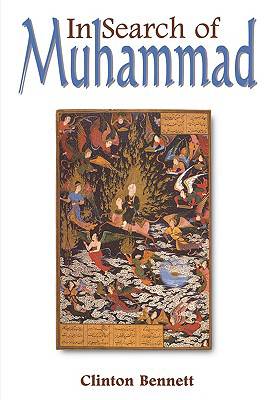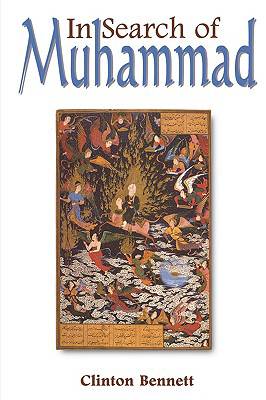
- Retrait gratuit dans votre magasin Club
- 7.000.000 titres dans notre catalogue
- Payer en toute sécurité
- Toujours un magasin près de chez vous
- Retrait gratuit dans votre magasin Club
- 7.000.0000 titres dans notre catalogue
- Payer en toute sécurité
- Toujours un magasin près de chez vous
127,45 €
+ 254 points
Description
Who was Muhammad? What do Muslims believe about him? What have non-Muslims said about him? Why has he been such a controversial figure? Why have non-Muslims called him a charlatan, and oppurtunist? Why Muslims call him the 'perfect man'? Why have his sexuality and his military exploits attracted censure? Are the texts available for constructing his biography reliable or suspect? There are some of the questions and issues which Clinton Bennett explores in his book. His preference for a conservative evaluation of the historical record will not please everyone, nor will his sympathetic treatment of Salman Rushdie's novel The Satanic Verses. In his effort to gain an insider-like understanding of Muhammad, the author found himself discussing at length some contentious issues, such as whether or not Muhammad performed miracles. His encounters with Muslims suggested that whilst non-Muslims have tended to dismiss the miracle stories as pious fiction, Muslims accept their authenticity. The author, who develops what he calls and 'anthropological theology' to pursue his study, argues that our preconceptions about Muhammad, rather than our reserch methods, determine how we reply to the question. 'What do you thin of Muhammad?'. The book takes diversity of Muslim opinion seriously and explores what theologians, mystics, philosophers and politicians have said about Muhammad. In addition, the book, which combines textual and interpersonal research, concludes with an attempt to incorporate regard for Muhammad within the authors own Christian worldview. Clinton Bennett's overall approach ensures the book's usefulness as a guide to Islamic thought and history. Clinton Bennett, newly appointed Associate Professor of Religion and Baylor University, Texas, was Senior Lecturer in Religious Studies, and assistant chaplain, at Westminster College, Oxford. He has worked in Bangladesh, in Birmingham as a community development worker, and on the staff of the Council of Churches for Britain and Ireland. he has also written Victorian Images of Islam (1992) and In Search of the Sacred: Athropology and the Study of Religions (1996) and is the editor of Discernment: An Ecumenical Journal of Inter-Religious Encounter. He is a Fellow of the Royal Asiatic Society and of the Royal Anthropological Institute.
Spécifications
Parties prenantes
- Auteur(s) :
- Editeur:
Contenu
- Nombre de pages :
- 288
- Langue:
- Anglais
- Collection :
Caractéristiques
- EAN:
- 9780304704019
- Date de parution :
- 01-01-98
- Format:
- Livre broché
- Format numérique:
- Trade paperback (VS)
- Dimensions :
- 154 mm x 234 mm
- Poids :
- 521 g

Les avis
Nous publions uniquement les avis qui respectent les conditions requises. Consultez nos conditions pour les avis.






